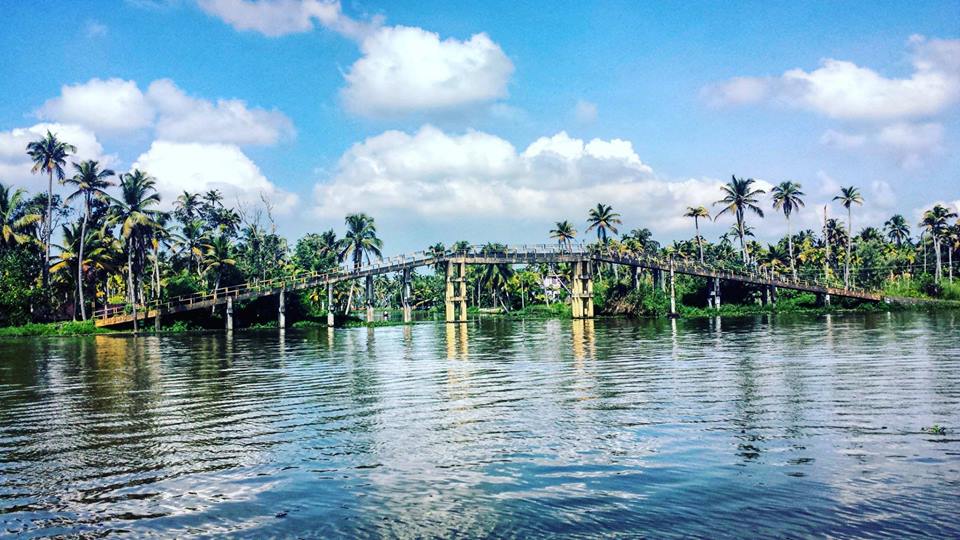Climate Change Dialogues: Denialists and the Disadvantaged
Megan Bonetti | Australia: Brisbane
Recently I had a conversation with a close friend on climate change. The discussion captivated me with the multilayered tensions of the global north and capitalist ideologies that doggedly influence the very present concern of global warming and relating social policy.
Amongst a general catch-up I queried my friend’s thoughts on climate change issues. His stark and unexpected response, “we evolve, we move on.”
…Excuse me?
I admired the honesty. His was a real-world response of neo-liberal thought. It was brutal and it was heartless. At least he had the guts to say what many are thinking (Cook, 2014).
The social worker in me petitioned him with the human impacts: African farmers encumbered by draught (Dube et al., 2013; Kurukulasuriya et al., 2006; Mayer, 2013), Pacific Islanders inundated by sea water (IPCC, 2014; PIANGO, 2014, Duvat, 2013), people leaving their homelands due to ever-increasing health and environmental dangers (National Geographic, 2015; UNHCR, 2011).
Again, he fires back with “survival of the fittest” rhetoric.
Unfortunately the climate movement has failed to gain the widespread appeal needed to pass significant climate policy and practical reform (Bullard & Müller, 2012). Industrial giants continue to produce and pollute and people like my friend; devalue the real catastrophe that is climate change (Amnesty International, 2014, 2015; Cook, 2015). While global aid organisations declare humanitarian catastrophe as a result of manmade pollution, industrial conservatives spin myths of global evolution and adaption (IPCC, 2014; Cook, 2014; UNFCCC, 2015).
Local, national and global repetition of climate change catastrophe does not seem to be creating a civilizational wake up call. Moreover messages delivered in the language of fires, floods, droughts and extinction must not be blatant enough to be convincing (Klein, 2014; McKinnon, 2014). So if individuals, like my friend, and carbon emitters like, AGL energy aren’t listening, what can we do (CER, 2015, Garnaut, 2011)?
Upon hearing my friend’s response to climate change I felt the need to blame him and many like him for their self-righteous ideologies that have significantly impacted the global poor (Böhm, 2012). However, history shows that the human race is really good at pointing blame. Years earlier I too was reluctant to participate in the climate conversation. The debate seemed wonky with excessive jargon. Yet I was unwittingly converted from the influences of a conservative upbringing to that of a less traditional “tree-hugger.” So, how did this happen?
There was no halogen light-bulb moment nor was I convinced by the volatile debate and environmental doom. For me, it was the slow unpacking of climate change in a tangible context. This was influenced through a community of people who impacted my values on sustainable living and more importantly did not guilt trip me if I put glad-wrap in the recycling bin.
Studies have shown that many individuals and communities feel disempowered or ignorant when discussing climate change, so in response there is silence (Szarka, 2013). Researchers suggest that protecting the rights of those disadvantaged by climate change will only occur when a non-judgemental culture of education and awareness is fostered in the discussion (Sasser, 2014; Smith, 2011). Only when climate change becomes an accessible conversation rather than a heated debate will key stakeholder’s sit-up and listen (Head et al., 2014; Luers, 2013). A movement for positive change in the environment will spread only when people, like my friend, can drop their defences and feel empowered to enter the conversation (Abney-Korn et al., 2013).
REFERENCES
Abney-Korn, K., Cassiman, S., & Fleetham, D. (2013). While we were sleeping: From dystopia to global awakening. Perspectives on Global Development and Technology, 12(1-2), 80-97. doi:10.1163/15691497-12341244
Amnesty International. (2014). Five Countries Vulnerable to Climate Change. Retrieved from http://www.amnesty.org.au/features/comments/35603/
Amnesty International. (2015). Nigeria: Hundreds of Oil Spills continue to Blight Niger Delta. Retrieved from https://www.amnesty.org/en/articles/news/2015/03/hundreds-of-oil-spills-continue-to-blight-niger-delta/
Australian Government. (2015). Clean Energy Regulator: National Greenhouse and Energy Reporting. Retrieved from http://www.cleanenergyregulator.gov.au/National-Greenhouse-and-Energy-Reporting/Pages/default.aspx
Böhm, S., Misoczky, M. C., & Moog, S. (2012). Greening capitalism?: A marxist critique of carbon markets. Organization Studies, 33(11), 1617-1638. doi:10.1177/0170840612463326
Bullard, N., & Müller, T. (2012). Beyond the green economy: System change, not climate change. Development, 55(1), 54-62. doi:10.1057/dev.2011.100
Cook, J. (2015). Explaining Climate Change Science & Rebutting Global Misinformation. Retrieved from http://www.skepticalscience.com/climate-change-little-ice-age-medieval-warm-period.htm
Dube, S., Scholes, R. J., Nelson, G. C., Mason-D'Croz, D., & Palazzo, A. (2013). South African food security and climate change: Agriculture futures. Economics, 7(35), 0_1.
Duvat, V. (2013). Coastal protection structures in Tarawa Atoll, Republic of Kiribati. Sustainability Science, 8(3), 363-369. Retrieved, April 29, from http://link.springer.com.ezp01.library.qut.edu.au/article/10.1007%2Fs11625-013-0205-9
Garnaut, R. (2011). Garnaut Climate Change Review – update 2011: Australia in the Global Response to Climate Change. Retrieved from http://www.garnautreview.org.au/update-2011/update-papers/up6-carbon-pricing-and-reducing-australias-emissions.pdf
Head, L., Adams, M., McGregor, H. V., & Toole, S. (2014). Climate change and Australia. Wiley Interdisciplinary Reviews: Climate Change, 5(2), 175-197. doi:10.1002/wcc.255
Intergovernmental Panel on Climate Change. (2014). Summary for Policy makers- Climate Change 2014: Impacts, adaptation and vulnerability. Retrieved, March 1, from http://ipcc-wg2.gov/AR5/images/uploads/IPCC_WG2AR5_SPM_Approved.pdf
Klein, N. (2014). This Changes Everything: Capitalism vs. Climate Change. New York, NY: Simon & Schuster.
Kurukulasuriya, P., Mendelsohn, R., Hassan, R., Benhin, J., Deressa, T., Diop, M., Dinar, A. (2006). Will african agriculture survive climate change? The World Bank Economic Review, 20(3), 367-388. doi:10.1093/wber/lhl004
Luers, A. (2013). Rethinking US climate advocacy. Climatic Change, 120(1), 13-19. doi:10.1007/s10584-013-0797-1
Mayer, A. (2013). Climate change already challenging agriculture. Bioscience, 63(10), 781-787. doi:10.1525/bio.2013.63.10.2
McKinnon, C. (2014). Climate change: Against despair. Ethics & the Environment, 19(1), 31-48. doi:10.2979/ethicsenviro.19.1.31
National Geographic. (2015). Education: Climate Refugee. Retrieved from http://education.nationalgeographic.com.au/education/encyclopedia/climate-refugee/?ar_a=1
Pacific Islander Association of Non-governmental Organisations. (2014). The Pacific Score on the Millennium Development Goals. Retrieved, April 29, from http://www.piango.org/Publications/publications.html
Sasser, J. S. (2014). The wave of the future? youth advocacy at the nexus of population and climate change. The Geographical Journal, 180(2), 102-110. doi:10.1111/geoj.12023
Seabright, M. (2010). The role of the affect heuristic in moral reactions to climate change. Journal of Global Ethics, 6(1), 5-15. doi:10.1080/17449621003701410
Smith, B. (2011). Doom, gloom and empty tombs: Climate change and fear. Studies in Christian Ethics, 24(1), 77-91. doi:10.1177/0953946810389120
Szarka, J. (2013). From climate advocacy to public engagement: An exploration of the roles of environmental non-governmental organisations. Climate, 1(1), 12-27. doi:10.3390/cli1010012
- Ann Hunt and Simon
-
 2
2



4 Comments
Recommended Comments